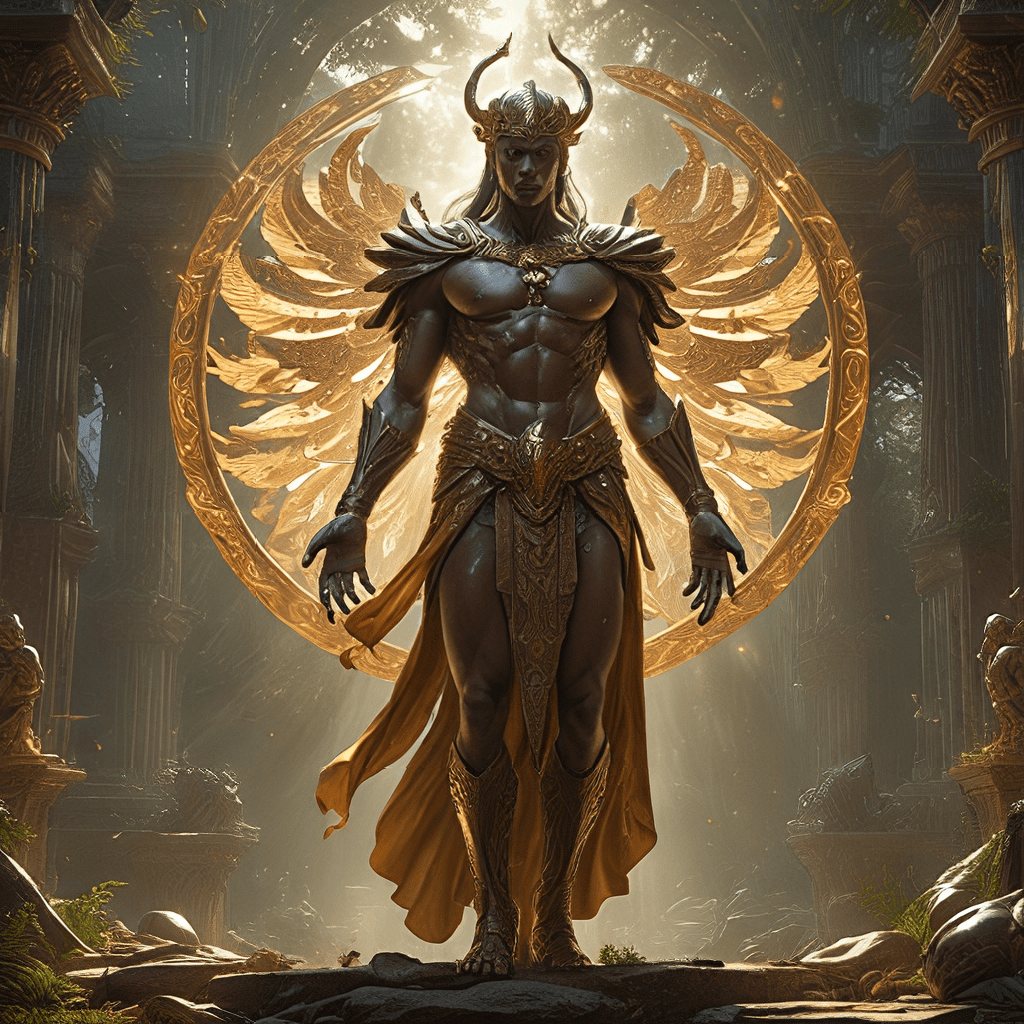The Power of Myth: Shaping Our Understanding of Humanity
I. Introduction: The Enduring Appeal of Egyptian Mythology
Ancient Egypt’s stories are more than just tales—they are powerful reflections of a civilization’s beliefs, values, and worldview. These myths, passed down through generations, offer a window into the ancient Egyptian mind, revealing their understanding of the world and their place within it. The enduring appeal of Egyptian mythology lies in its ability to connect with universal human experiences, exploring themes like creation, life, death, power, and justice.
The very concept of “myth” is often misunderstood. While often associated with fiction, myths are not simply made-up stories. They are powerful narratives that express profound truths about the human condition. For the ancient Egyptians, these myths were not just stories—they were living truths, guiding their daily lives and rituals.
II. Creating Order from Chaos: The Myth of Creation
The Egyptian creation myth, like many others around the world, attempts to explain the origins of the universe. In this story, the world emerges from a primeval ocean of chaos, a state of disorder and uncertainty. From this chaos, the sun god Ra emerges, bringing light and order to the world. This act of creation is not simply a physical one, but a moral one as well. It establishes a crucial concept in Egyptian belief: “ma’at”—the principle of cosmic order, justice, and harmony.
The Egyptian creation myth doesn’t just explain the origins of the universe; it also reflects their understanding of the cyclical nature of life. Just as the world was created from chaos, the life cycle continually renews itself—death is not an end, but a transition to a different state of being.
III. The Divine Hierarchy: Gods and Goddesses as Mirrors of Humanity
The Egyptian pantheon is a rich tapestry of deities, each representing different aspects of the natural world, human emotions, and societal values. Ra, the sun god, embodies power, wisdom, and creation. Osiris, the god of the underworld, represents death, resurrection, and the cycle of life. Isis, goddess of magic and motherhood, embodies nurturing and compassion. Horus, the falcon god, symbolizes kingship and strength. And Set, the god of chaos, represents the forces of disorder and destruction.
The relationships between these gods and goddesses are often complex and dynamic, reflecting the intricacies of human relationships and societal dynamics. For example, the conflict between Horus and Set, representing the struggle between order and chaos, serves as a powerful metaphor for the constant battle between good and evil in the human world.
IV. The Cycle of Life and Death: Navigating the Afterlife
Death and the afterlife held immense significance in ancient Egyptian culture. The Egyptians believed that after death, the soul would embark on a journey through the underworld, facing trials and judgments before reaching the afterlife. This journey culminated in the Weighing of the Heart ceremony, where the deceased’s heart was weighed against the feather of Ma’at, representing justice. If the heart was found to be lighter than the feather, the soul was granted eternal life in the Field of Reeds, a paradise.
To ensure a smooth passage to the afterlife, elaborate burial rituals and monumental pyramids were constructed, serving as eternal resting places for the pharaohs and other important figures. These rituals and structures reflected the Egyptians’ deep belief in the immortality of the soul and their determination to honor their deceased loved ones.
V. The Struggle for Power: Myths of Conflict and Transformation
The myths of conflict are a vital part of Egyptian mythology, reflecting the struggles and transformations inherent in the human experience. The myth of Horus and Set, for example, tells of a bitter rivalry between two brothers, vying for the throne of Egypt. This story explores themes of power, ambition, revenge, and ultimately, redemption.
These myths illustrate the complexities of human nature and the challenges of navigating social power dynamics. They remind us that even in the face of conflict, there is the potential for transformation, forgiveness, and the possibility of achieving a higher state of being.
VI. The Power of Magic: Shaping Reality
Magic played a significant role in the lives of ancient Egyptians. They believed that magic could influence the world around them, protecting them from harm, ensuring good fortune, and even communicating with the divine. In Egyptian mythology, gods and goddesses often possessed magical powers, using spells and rituals to intervene in human affairs.
The concept of magic in Egyptian mythology underscores the idea that human beings have the capacity to shape their own reality. Whether through the use of rituals, charms, or simply by harnessing the power of belief, ancient Egyptians sought to control their destiny and navigate the unknown.




